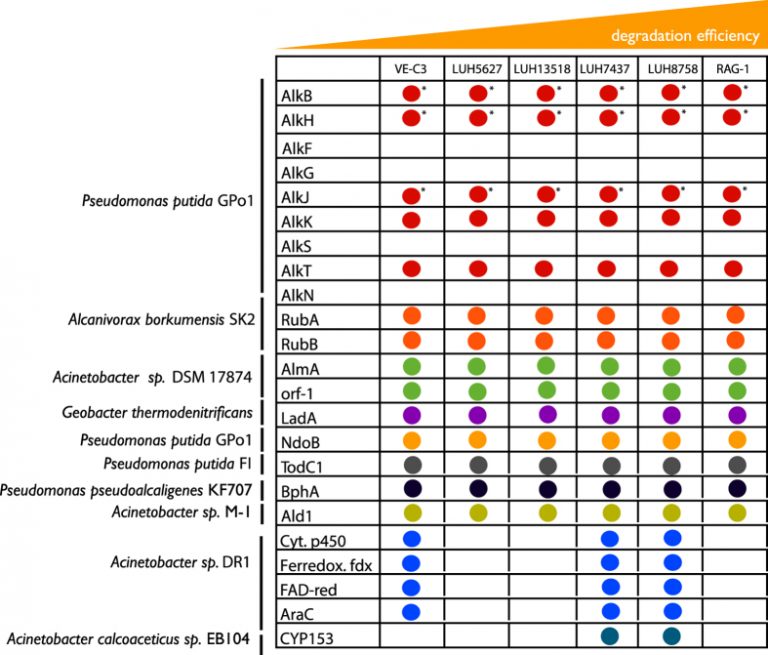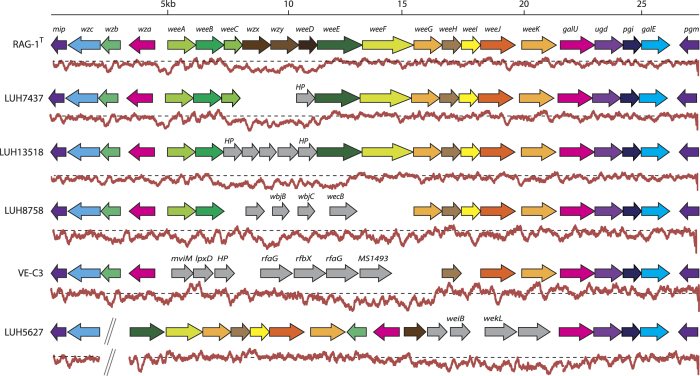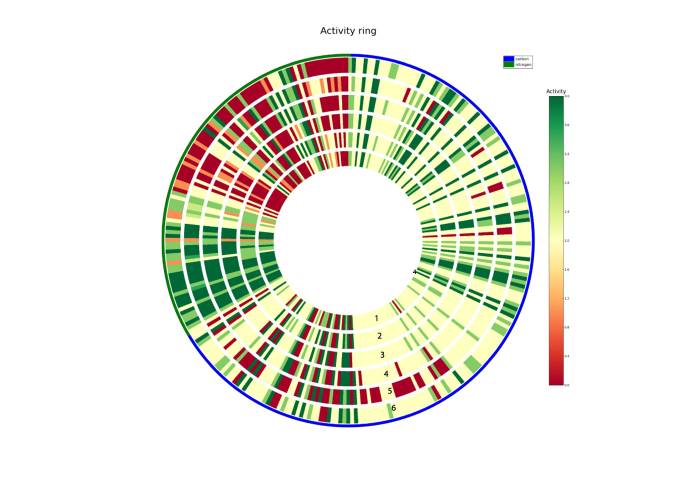Crude oil is a complex mixture of hydrocarbons and other organic compounds that can produce serious environmental problems and whose removal is highly demanding in terms of human and technological resources. The potential use of microbes as bioremediation agents is one of the most promising fields in this area. Members of the species Acinetobacter venetianus have been previously characterized for their capability to degrade n-alkanes and thus may represent interesting model systems to implement this process. Although a preliminary experimental characterization of the overall hydrocarbon degradation capability has been performed for five of them, to date, the genetic/genomic features underlying such molecular processes have not been identified. Here we have integrated genomic and phenotypic information for six A. venetianus strains, i.e. VE-C3, RAG-1T, LUH 13518, LUH 7437, LUH 5627 and LUH 8758. Besides providing a thorough description of the A. venetianus species, these data were exploited to infer the genetic features (presence/absence patterns of genes) and the short-term evolutionary events possibly responsible for the variability in n-alkane degradation efficiency of these strains, including the mechanisms of interaction with the fuel droplet and the subsequent catabolism of this pollutant.
Images are from the NCBI publication (top left to right).
* Pin indicating negative paraoxon, positive methyl parathion
* The pattern of presence/absence of genes related to alkane degradation in other species and genera in the six A. venetianus strains.
* Structure and composition of the emulsan gene cluster in the six A. venetianus strains.
* Phylogenetic tree of Acinetobacter genus.
* Phenotype microarray experiment
Sorry, no records were found. Please adjust your search criteria and try again.
Sorry, unable to load the Maps API.
Channelview
Texas
77530
United States





